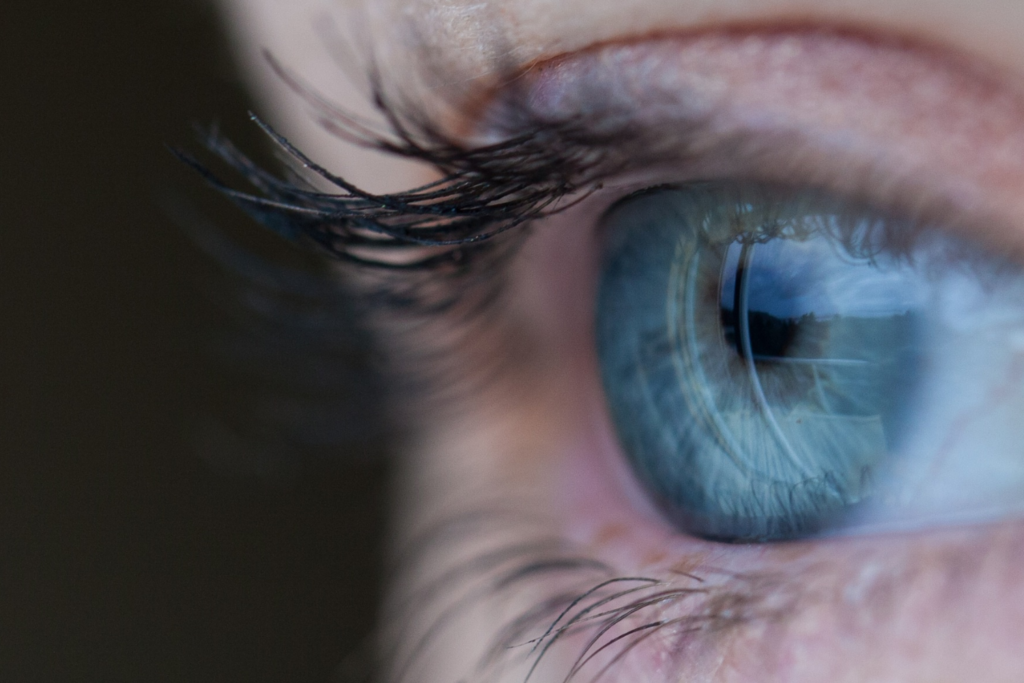You can live with glaucoma for years without even knowing it. While it can take years for the effects to become noticeable, vision loss due to glaucoma is permanent even with treatment. It’s essential that you start getting comprehensive exams as soon as possible to monitor the progress of the disease and retain what eyesight you still have.

Cases of blindness due to glaucoma are relatively rare but still possible. Knowing your risk factors and seeking immediate treatment are the first steps for retaining your vision. Glaucoma attacks the optic nerve, slowly resulting in the loss of your peripheral vision. Treatment is available in the form of eye drops, oral medications, and surgery.
Does glaucoma cause blindness?
Yes, glaucoma can cause blindness if left untreated. Fortunately, this is fairly rare with only around 5% of glaucoma patients experiencing blindness. A bigger concern is the estimated 10% of glaucoma patients who experience permanent vision reduction due to the disease.
So how long does it take to go blind without glaucoma treatment? This is a much more difficult question to answer. The progression from glaucoma to blindness is often slow and gradual. However, the rate that you experience vision loss will depend on a variety of risk factors.
Risk Factors for Glaucoma
There are a few factors that can significantly increase your risk of developing glaucoma. They include:
- Age
- Race
- Genetics
- Medical history
Age is one of the most significant risk factors for developing glaucoma. As you get older, your risk only goes up. This is especially true for people over the age of 60. However, African Americans face an increased risk starting at age 40.
Race also plays an important role in your risk of developing glaucoma. For instance, African Americans are around five times more likely to develop glaucoma than others. Hispanics face an increased risk regardless of age, while those of Native American and Asian descent have a higher chance of developing angle-closure glaucoma.
Your own genetics can help determine your risk of glaucoma. Talk to relatives and establish your family history. Make sure to alert your doctor if you have any parents, siblings, or other relatives with this particular disease. Alternatively, make sure to let them know if you get diagnosed so they can get checked, as well.
Knowing your own medical history can also help establish your risk. For example, high blood pressure, nearsightedness, previous eye injuries, and long-term steroid use all increase your risk for glaucoma. Talk to your eye doctor about what other personal medical issues may increase your risk.
It’s important to learn your risk factors early and talk about them with your doctor. You can’t prevent glaucoma, but your doctor will be able to develop a treatment plan that helps control your symptoms and lets you continue living the life that you love.
What is glaucoma?
Glaucoma is an eye disease that causes damage to the optic nerve. This damage can go unnoticed for a long time, but the effects are irreversible. As glaucoma damages the optic nerve, peripheral vision is lost, making it more difficult to see objects without directly looking at them. While experts aren’t sure of the exact cause, glaucoma is often connected to high eye pressure.
When healthy, a water liquid known as aqueous humor is constantly flowing into and out of the eye. Unfortunately, the drainage system can act as a sink and become clogged, resulting in increased eye pressure (intraocular pressure). Increased pressure within the eye causes the nerve fibers in the eye to die, resulting in decreased vision or even blindness.
There are different types of glaucoma with some being more common than others. They include:
- Open-angle glaucoma
- Angle-closure glaucoma
- Normal-tension glaucoma
- Congenital glaucoma
Open-angle glaucoma is the most common and makes up 90% of cases. Angle-closure glaucoma is more rare and develops quicker than other types. Normal-tension glaucoma is unique in that it damages the optic nerve without very high eye pressure. Congenital glaucoma is present at birth and is very rare.
Make sure to check out our Glaucoma Resource Page to learn more about the disease, its symptoms, and what you can do about it.
Glaucoma Treatment in Knoxville, TN
People with glaucoma should seek treatment immediately to help control their symptoms. The first step in glaucoma treatment is getting a comprehensive eye exam. They give our eye surgeons a more detailed look inside your eye to check for potential problems in the future.
When caught early, our team can implement treatment to help prevent vision loss. This begins with eye drops and oral medication in the early stages. You may be advised to pursue surgery if these aren’t enough to preserve your vision. Surgical options include laser surgery, trabecular surgery, or trabeculectomy.
Xen Gel Stent
One exciting surgical option is the Xen Gel Stent. This minimally invasive implant may be able to reduce your eye pressure and your need for medicated eye drops. It works by bypassing obstructed drainage channels, making it ideal if you have open-angle glaucoma. Contact us today to learn if the Xen Gel Stent is right for you.
Blindness due to glaucoma is possible but preventable with treatment. Seek immediate treatment if you suspect you have glaucoma and talk to one of our surgeons about your risk factors. Glaucoma works by attacking your optic nerve and diminishing your peripheral vision. Treatment is possible with the help of eye drops, oral medications, and surgery.
Are you concerned that you’re experiencing glaucoma symptoms? Contact us today and schedule your comprehensive eye exam.
Baptist Eye Surgeons is an ophthalmological practice in Knoxville, TN, and Morristown, TN. Give us a call at 865-579-3920 for more information or to schedule an appointment.






